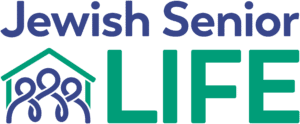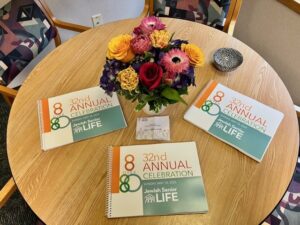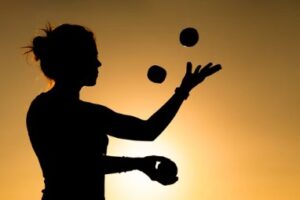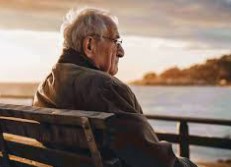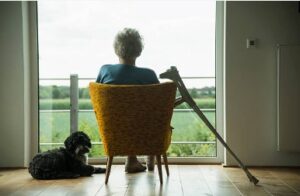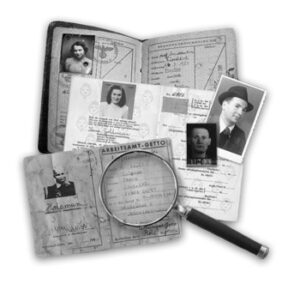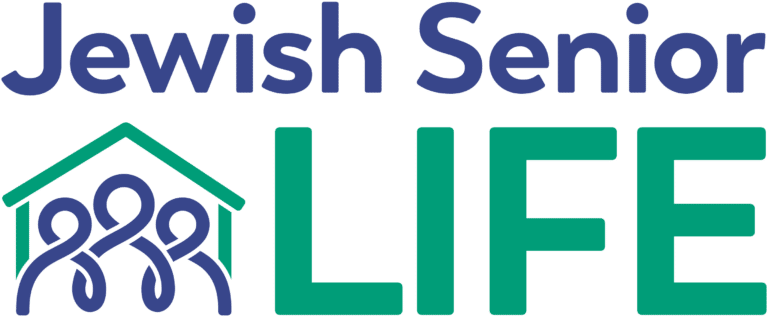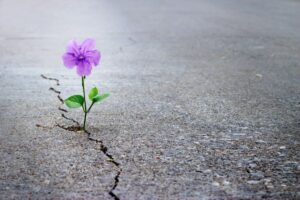
Post Traumatic Growth
By Jo Strausz Rosen
This week JSL staff attended Therapy Session #2 with Betsy Stone, PhD. She provided guidance on what our brains have been dealing with during the Pandemic. Our brains need recovery. There has been a shift in personality for some. Many have caused themselves harm and some have taken their own lives. These times have changed all of us.
We knew before COVID that there were significant inequalities in society. Health Inequality and diversity inequality are issues we continue to discuss. The Pandemic has intensified many problems that were there before the outbreak. While COVID has made our burdens heavier and our challenges greater we can learn from them. This is where post traumatic growth comes in, as Betsy explained. Traumatic growth is about turning adversity around to learn from it and make ourselves stronger.
More people are struggling with more issues. There is a decrease in availability of many things we’ve taken for granted. Hospital beds are in shorter supply. Essential health care workers have been taxed to their limits. And the social activities and interactions we’ve always expected are now a challenge. All these things have created more stress. The signs are everywhere. Addictive behavior like disorder eating and drug abuse has increased.
Things like separation anxiety and feeling loss of control has led to an increase in suicidal behavior. Our children are affected deeply – their behaviors might include heightened impulsivity, decrease in trust, increased caution, more gender identity questions, familial and community issues leading to unwillingness to attend school, all of these are a manifestation of trauma.
PTSD is not just for soldiers anymore. We experience it individually and in groups. But growth is transformative. We end up differently. We changed and we are bouncing back. There are growing pains… But growth never stops.
Here are 6 Ways to cope with stress and trauma
- We can take stock of our personal strengths. How can we learn to respond to stress in positive ways? How can we access our natural empathy and help others? We must care first for ourselves before we can take care of others.
- We can reexamine our values and discover what really matters. Many who have experienced loss from a trauma created a movement, like MADD; Mothers Against Drunk Drivers; or Black Lives Matter – These movements use positive efforts to turn traumatic events into meaning-making.
- We can rekindle and cultivate our relationships with others. Focus on finding how to increase compassion and altruism.
- We can remember to appreciate life – “I am blessed” attitude is gratitude when you think of a higher power and are thankful for smaller things – for your spouse, your co-workers, for friends, for your children, for your neighbor, for the friendly waitress…
- We can recognize the spiritual changes and developments that help us grow, like when we take time to notice nature, clouds, flowers during long walks.
- We can cultivate growth in different arenas. Have you noticed the need to do something more at home? Some of us sort through drawers and organize. Some give away gently used items that others can benefit from. Some have begun to take painting classes, knitting, sewing, baking, cooking, working around the house, decorating, exercising, cleaning… all ways to deal with stress and trauma in very creative ways. And in the end, look what you made and did. Enjoy the feeling of accomplishment.
We realize that stress can be good. It can make you attend to timelines and push you to get things done. Doing things for others like volunteering is a wonderful way we can give to each other and care for those who need us and at the same time feed our own souls. There are documented medical health benefits from volunteering. https://www.health.harvard.edu/blog/volunteering-may-be-good-for-body-and-mind-201306266428
At this time, we are so pleased to let you know that JSL is opening back up to welcome all volunteers back to our buildings, starting next week, Monday, February 14. You can contact Leslie Katz for more information lkatz@jslmi.org 248-592-5062
